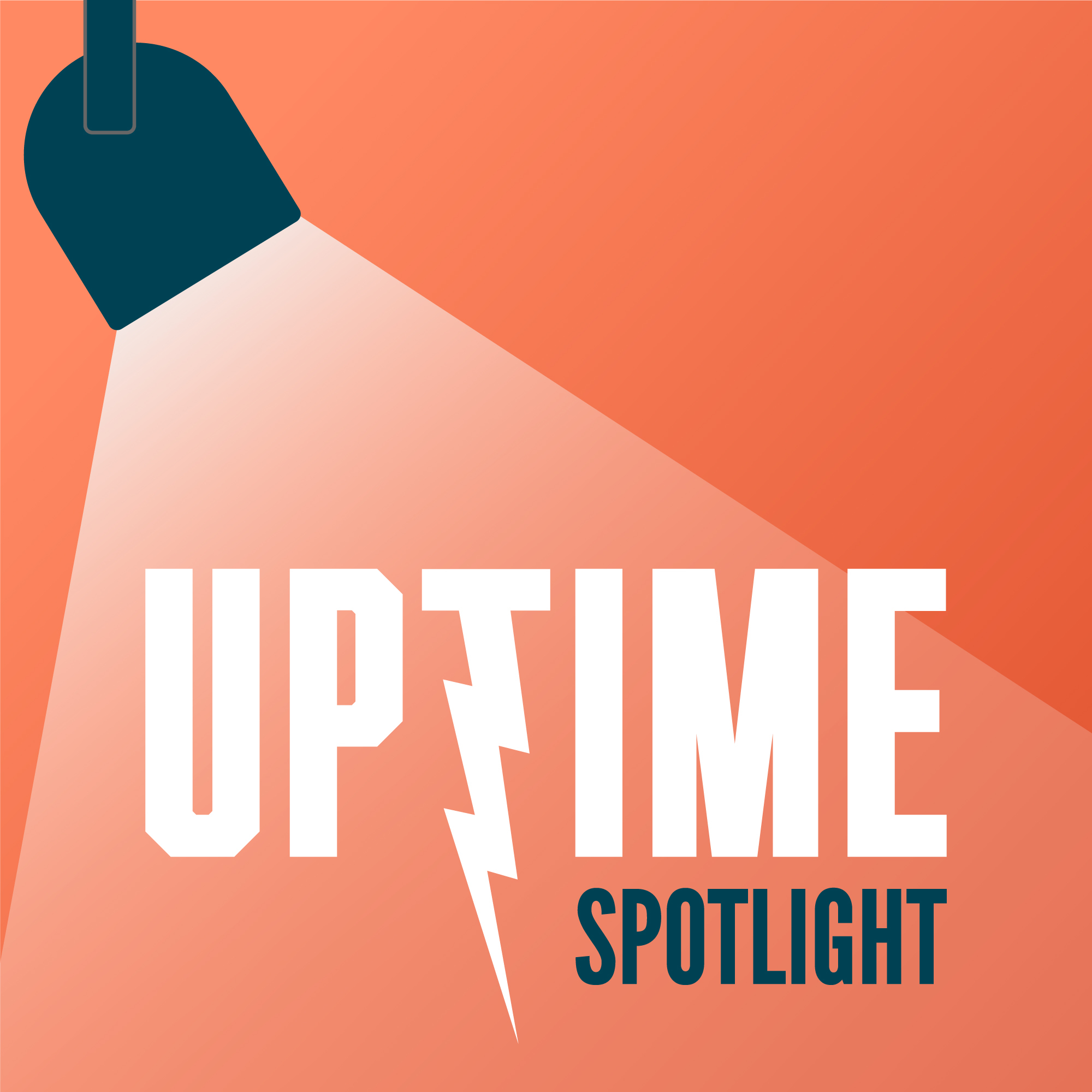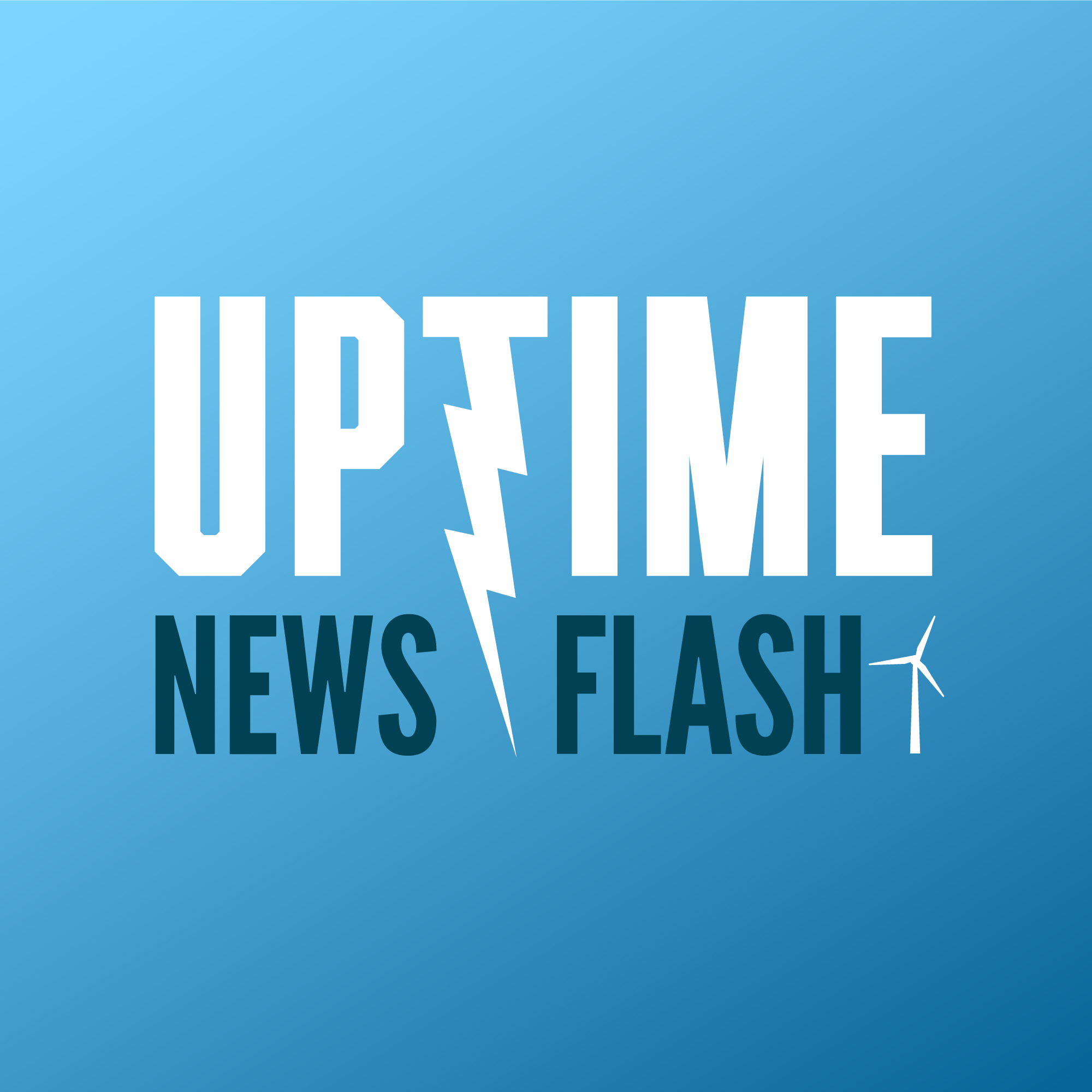US Offshore Wind Offensive & Industry Impact
Update: 2025-09-09
Description
Allen and Joel discuss the aggressive actions by the Trump administration against offshore wind projects. They also consider the broader implications for the wind industry, exploring onshore impacts, geopolitical maneuvers, and strategies for companies to adapt and prepare for future challenges. Register for the next SkySpecs webinar!
Sign up now for Uptime Tech News, our weekly email update on all things wind technology. This episode is sponsored by Weather Guard Lightning Tech. Learn more about Weather Guard's StrikeTape Wind Turbine LPS retrofit. Follow the show on Facebook, YouTube, Twitter, Linkedin and visit Weather Guard on the web. And subscribe to Rosemary Barnes' YouTube channel here. Have a question we can answer on the show? Email us!
You are listening to the Uptime Wind Energy Podcast brought to you by build turbines.com. Learn, train, and be a part of the Clean Energy Revolution. Visit build turbines.com today. Now here's your hosts, Allen Hall, Joel Saxum, Phil Totaro, and Rosemary Barnes.
Allen Hall: Welcome to the Uptime Wind Energy Podcast. I'm your host, Allen Hall, and I'm here with Joel Saxum, who's up in Wisconsin.
Joel, you've had some really cold weather up there the last couple of days. It's still September. Doesn't really make sense, Alan. I dunno. It's, it's
Joel Saxum: September, well, beginning of September and this morning when I let the dog out at 5:20 AM whatever time she decided to wake me up, it was 36 degrees here.
That's way too cold. Um, I knew, I, I, I went up here to escape a little bit of heat from in Texas, but I did not look to Frost advisories and like sweatshirts and vests and boots. Um, but that's what's happening. Yeah. Even, uh. Even a [00:01:00 ] few red leaves floating around on the lawn up here. So, uh, yeah, winter or fall is coming.
That means, you know what fall coming means is blade season for repairs in the northern hemispheres slowing down or shutting down shortly. So we're gonna get to hear what happened. Maybe a postmortem, hopefully on the, the blade repair season in North America.
Allen Hall: Yeah, it's been busy from what I could tell.
And plus there's a lot of construction going on. New insights. There's, uh, all kinds of turbines being planted right now. We're gonna be working through the end of the year easily, if the weather will support it. Very active time at the moment. And speaking of active time, this is our second take of this podcast, uh, just because so much has happened since we recorded last evening.
Uh, Joel and I thought we ought to take another try or attempt at this. Try to give you the, the most updated information. Not to say it's not gonna change over the next couple of hours after we finish this podcast, but, uh, the Trump administration [00:02:00 ] has launched its most aggressive attack on America's offshore wind industry.
Uh, the federal government is now working to withdraw permits for New England Wind one and two off the coast of Massachusetts. These projects are valued at roughly $14.6 billion by Bloomberg, NEF, and we power more than 900,000 homes. Uh, but the, the issue really is why are they being shut down? Nobody really knows.
Uh, and there's a lot of conjecture about it. And Joel, you and I were just talking before we recorded here. It may have something to do with Denmark.
Joel Saxum: Yeah, I think you wanna believe that. Smoother minds will prevail that, uh, logic and pragmatism is a part of government. But what it really seems is there's, there's favoritism and there's egos and there's feelings driving some of these, these decisions.
Right? Today we just heard or [00:03:00 ] just read that the, the Danish government is in California signing a policy agreement for collaboration with Gavin Newsom and the, the administration out there. We've, and, and this is like on, this is on top of, uh, Trump's rhetoric around, or the Trump administration's rhetoric around we would like Greenland.
...
Sign up now for Uptime Tech News, our weekly email update on all things wind technology. This episode is sponsored by Weather Guard Lightning Tech. Learn more about Weather Guard's StrikeTape Wind Turbine LPS retrofit. Follow the show on Facebook, YouTube, Twitter, Linkedin and visit Weather Guard on the web. And subscribe to Rosemary Barnes' YouTube channel here. Have a question we can answer on the show? Email us!
You are listening to the Uptime Wind Energy Podcast brought to you by build turbines.com. Learn, train, and be a part of the Clean Energy Revolution. Visit build turbines.com today. Now here's your hosts, Allen Hall, Joel Saxum, Phil Totaro, and Rosemary Barnes.
Allen Hall: Welcome to the Uptime Wind Energy Podcast. I'm your host, Allen Hall, and I'm here with Joel Saxum, who's up in Wisconsin.
Joel, you've had some really cold weather up there the last couple of days. It's still September. Doesn't really make sense, Alan. I dunno. It's, it's
Joel Saxum: September, well, beginning of September and this morning when I let the dog out at 5:20 AM whatever time she decided to wake me up, it was 36 degrees here.
That's way too cold. Um, I knew, I, I, I went up here to escape a little bit of heat from in Texas, but I did not look to Frost advisories and like sweatshirts and vests and boots. Um, but that's what's happening. Yeah. Even, uh. Even a [00:01:00 ] few red leaves floating around on the lawn up here. So, uh, yeah, winter or fall is coming.
That means, you know what fall coming means is blade season for repairs in the northern hemispheres slowing down or shutting down shortly. So we're gonna get to hear what happened. Maybe a postmortem, hopefully on the, the blade repair season in North America.
Allen Hall: Yeah, it's been busy from what I could tell.
And plus there's a lot of construction going on. New insights. There's, uh, all kinds of turbines being planted right now. We're gonna be working through the end of the year easily, if the weather will support it. Very active time at the moment. And speaking of active time, this is our second take of this podcast, uh, just because so much has happened since we recorded last evening.
Uh, Joel and I thought we ought to take another try or attempt at this. Try to give you the, the most updated information. Not to say it's not gonna change over the next couple of hours after we finish this podcast, but, uh, the Trump administration [00:02:00 ] has launched its most aggressive attack on America's offshore wind industry.
Uh, the federal government is now working to withdraw permits for New England Wind one and two off the coast of Massachusetts. These projects are valued at roughly $14.6 billion by Bloomberg, NEF, and we power more than 900,000 homes. Uh, but the, the issue really is why are they being shut down? Nobody really knows.
Uh, and there's a lot of conjecture about it. And Joel, you and I were just talking before we recorded here. It may have something to do with Denmark.
Joel Saxum: Yeah, I think you wanna believe that. Smoother minds will prevail that, uh, logic and pragmatism is a part of government. But what it really seems is there's, there's favoritism and there's egos and there's feelings driving some of these, these decisions.
Right? Today we just heard or [00:03:00 ] just read that the, the Danish government is in California signing a policy agreement for collaboration with Gavin Newsom and the, the administration out there. We've, and, and this is like on, this is on top of, uh, Trump's rhetoric around, or the Trump administration's rhetoric around we would like Greenland.
...
Comments
In Channel







